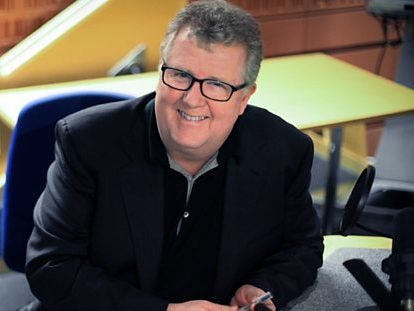
Nowadays Panorama attracts around a couple of million viewers per broadcast.
In November 1995, when it aired an interview with Princess Diana in which she declared “there were three of us in this marriage”, it attracted 23m.
When Steve Hewlett became editor of Panorama his plan was to make it “must watch” again. He certainly did that.
The Times obituary of Hewlett notes his doubts before the interview was aired.
“I thought it will be shit. The only thing that was worse than not having this interview was that it would be fawning nonsense. I felt that could be career-ending.”
He kept the programme secret from the rest of the Panorama team and even the BBC chairman, Marmaduke Hussey, whose wife was a lady-in-waiting to the Queen.
The Times reveals that the first lesson Hewlett learned as a budding journalist was not to ignore the obvious.
Early on his career, when he was freelancing, Panorama asked him to find two contacts (at a day rate of £75). He obtained one from a journalist friend, and the other from the phone book, but left it two hours before calling the producer back. They were so impressed they got him in to work on the rest of the programme.
According to the Daily Telegraph, it was Hewlett who suggested reporter Martin Bashir ask Diana for the interview in the first place.
Hewlett is also remembered for a Panorama about Jaymee Bowen, an 11-year-old refused treatment for leukaemia. Transmission only went ahead after a court order banning the child from being named was lifted.
He went on to work as a TV executive for Channel 4 and Carlton Television before becoming a media columnist for The Guardian and presenter of Radio 4’s The Media Show.
Hewlett achieved probably his highest profile as a journalist in his final months with a cancer diary in The Observer and his weekly interviews with Eddie Mair on PM.
These began in September, six months after his initial diagnosis, and culminated with news two weeks ago that he had decided to marry his partner in hospital after being told that his illness was no longer treatable and he had only weeks to live.
He said: “The whole thing is organised within an hour They got a Chelsea registrar, they got a Chelsea vicar hauled out of a dinner she was in.
“The staff amazingly produced a wedding cake, the wife of a gent sitting next door offered to help with the cosmetics, the nurses produced bunches of flowers. A couple of bottles of prosecco appeared from goodness knows where. And then this ceremony begins. It was like a combination of All Gas and Gaiters and The Vicar of Dibley.
“The idea that Britain doesn’t have people that really care about other people or go the extra mile when it matters is such nonsense. In this little room here, this was Britain at its best.”
Journalists to pay tribute to Hewlett have included Channel 4 News correspondent Alex Thomson: “A piercing critic of the media; a moving chronicler of his own ending.”
And former BBC colleague Michael Crick: “A great buccaneering journalist and analytical mind. Gentle man of huge common sense.”
Newsnight last night paid tribute with a 2014 Hewlett report which followed end of the hacking the trial.
We ended our programme tonight with a playout dedicated to Steve Hewlett. #Newsnight pic.twitter.com/kvLd3WzsE8
— BBC Newsnight (@BBCNewsnight) February 20, 2017
Last night Radio 4’s PM paid tribute with a 20-minute digest of its weekly Hewlett interviews.
These culminated with his final words on the programme: “For me personally it’s been a pretty positive experience.
“My abiding hope is that it has been as positive an experience for the people listening to it. But Eddie, it’s not over yet mate.”
Picture: BBC
Email pged@pressgazette.co.uk to point out mistakes, provide story tips or send in a letter for publication on our "Letters Page" blog
